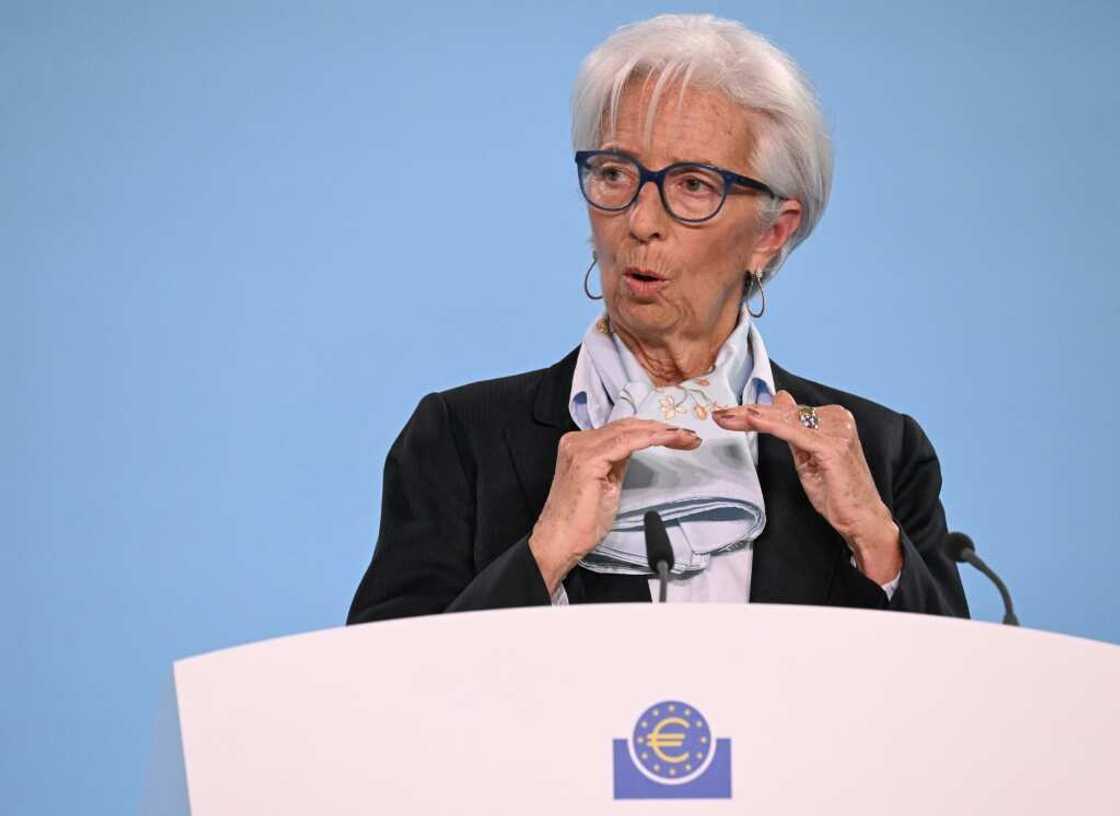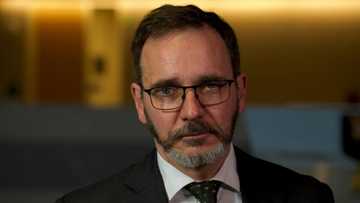'We are not Fed-dependent,' ECB chief says on rate cuts

Source: AFP
PAY ATTENTION: The 2024 Business Leaders Awards Present Entrepreneurs that Change Nigeria for the Better. Check out their Stories!
European Central Bank president Christine Lagarde suggested Tuesday that the regulator could lower interest rates before a similar move by the US Federal Reserve, saying "we are not Fed-dependent."
Speaking in Washington on the sidelines of spring meetings at the International Monetary Fund, Lagarde said Europe was seeing a "disinflationary process" -- with observers betting on the first rate cut to take place in June.
"If we don't have a major shock in development, we are heading toward a moment where we have to moderate the restrictive monetary policy," Lagarde said, without giving a date.
"You know, we are data-dependent, our data came down in March, we have a little bit of data in April," she added. "It's on that basis that we have to make our decision and not on the basis of any central bank in the world, be it the Fed."

Read also
Mideast-related oil price spike threatens 'relatively good' economic outlook: IMF chief economist
Eurozone inflation slowed more than expected in March to 2.4 percent, while consumer prices picked up again in the United States, with a 3.5 percent year-on-year increase recorded in March, dimming hopes for a rapid rate cut.
But Lagarde also warned that the road to reaching 2 percent inflation would be "bumpy."
She said inflation figures were different in Europe because of "European consumers that are very cautious, that continue to save significantly."
"Why is that? It's fiscal, it's energy and it's a natural tendency of the American consumers to have confidence, to spend, not to save so much," she said on CNBC.
Separately, Francois Villeroy de Galhau, governor of the French central bank, said policymakers were closely watching the crisis in the Middle East and "its possible spillovers on energy prices" in case adjustment would be needed after the upcoming rate cut.
"If ever these consequences happened to be lasting and propagating -– i.e. affecting underlying inflation -- we would have ample room after the first rate cut to adjust the pace and the destination if needed, in the incoming monetary path," Villeroy de Galhau said during a roundtable at the Economic Club of New York.
Source: AFP

